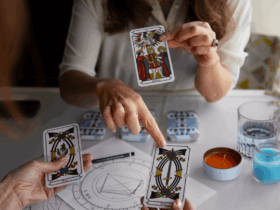Ever wished for a crystal ball to predict the fate of your relationships right from the start? To determine if a new romantic interest is truly worth your time and effort? Well, as it turns out, there are early warning signs, often glaring like neon lights, that can reveal the destiny of a relationship if you pay close attention.
More than three decades ago, therapist Robin Norwood explored the intricacies of toxic relationships in her bestselling book, “Women Who Love Too Much: When You Keep Wishing And Hoping He’ll Change.” Within its pages, she devoted a chapter to unraveling how two individuals heading for a tumultuous, dysfunctional relationship can spot each other and feel an inexplicable attraction.
Norwood hinted that subtle signals are exchanged between such couples at the outset, suggesting that the ending of a relationship can indeed be foreseen from the beginning.
At times, these signals are far from subtle; they can be as conspicuous as a lightning bolt announcing, “Shelve those beautiful dreams; this one might not be for you.” These signals, if heeded, often provide a preview of what lies ahead. So, it’s crucial to keep your ears open and resist the temptation to rationalize away these early warnings with hopeful dreams or excuses.
To illustrate this point, let’s examine my three most recent significant relationships. In each case, something my partner said at the outset of the relationship foreshadowed how it would eventually conclude.
Related: Toxic Patterns: How to Recognize and Break Free Together
In two instances, I was reluctant to acknowledge the truth, and in both, I later regretted my denial.
Here are some straightforward indicators to gauge the potential longevity of your relationship before you become too deeply invested:
- “I don’t love you, and I’m afraid I’m just going to use you.” These were the words uttered by my first serious boyfriend during our third or fourth date. Despite my initial skepticism, I should have taken his statement more seriously. When we met, he was grappling with a painful divorce, having discovered his wife in bed with another man. He had made desperate attempts to win her back, even though she admitted she didn’t love the other man either.
As a former minister, I assumed he was honest and sincere. We enjoyed a wonderful time together, and I was so enthralled by the relationship that I believed if I treated him better than his ex-wife had, he would eventually recognize my worth and change his mind about me.
Two years down the road, I found myself driving long distances to shuttle him to work after his car broke down. I even lent him $5000 towards a new vehicle. All the while, I endured his complaints about being rejected for an assistant manager position at a jewelry store because his personality test results were deemed too honest.
The store typically refrained from hiring individuals with his profile due to a perceived correlation with dishonesty. However, they made an exception in his case, likely swayed by his ministerial background. Shortly after his hiring, he met someone new at the store, abruptly ended our relationship, and became engaged within months. Moreover, he violated company policy by using his employee discount to buy jewelry for his wedding photographer, resulting in his termination.
- “I don’t expect to live very long.” Around nine months into a blissful relationship that eventually spanned eleven years, my partner said to me, “I love you enough to marry you.” This relationship was marked by unwavering affection, and he never gave me reason to doubt his feelings.
However, he often mentioned his belief that he wouldn’t live a long life. While he acknowledged that the women in his family tended to live long lives (his mother lived into her nineties), the men typically didn’t make it past their seventies.
Sadly, my husband didn’t even reach that age. He was diagnosed with brain cancer and passed away at sixty-six. Once again, the initial warning proved to be accurate.
- “I have nothing to offer you. I have nothing to offer anyone in my current condition.” In the early stages of a profoundly intimate relationship with a man who had recently separated from a twenty-year unhappy marriage, he disclosed, “It’s possible I will not have the courage to do what I need to do. That I’ll find I’m not strong enough to live on my own. If that turns out to be true, it’s my fault and no one else’s. I have nothing to offer you. I have nothing to offer anyone in my current condition.”
When you hear such words, take them to heart. After he moved out, he faced alienation from his wife and grown children, leading to his return to the marriage. He abruptly ended our relationship, causing immense pain. Two years later, he resurfaced, still married and still miserable.
Three significant relationships; three instances where my partners hinted at the outcome from the outset. So, how can you determine the fate of your relationship at the beginning? It’s simple—listen. Better yet, believe what your partner says.





















